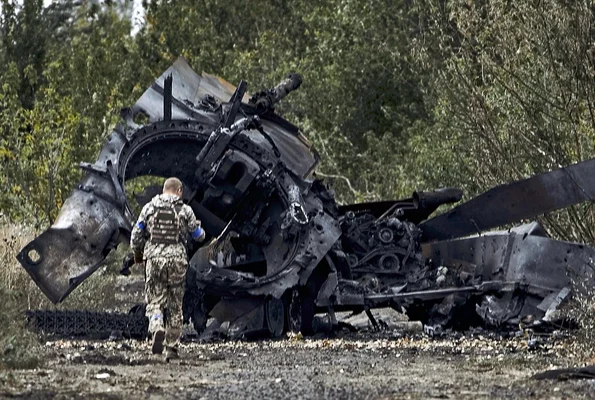As the Russian military continues to struggle in Ukraine, several signs are emerging that indicate a decline in President Vladimir Putin’s centripetal power. The “Great Escape” of Moscow officials, the rise of hardliners, and concerns of a “dual power” in the Kremlin (presidential administration) over the struggle for succession are emerging. Mr. Putin has been leading a “strong Russia,” but his health has been failing again, and he may be losing his ability to take responsibility for his own actions.
Moscow City Officials in “Great Desertion

On November 2, the Russian presidential administration announced that Vladimir Putin had held a telephone conversation with Indonesian President Joko. It did not say whether Putin would directly participate in the Group of 20 summit (G20 summit) to be held in the country in mid-month.
Independent Russian media reported, based on several Kremlin sources, that Putin will not attend the G20 and that Prime Minister Mikhail Mishustin is likely to lead the delegation.
Putin’s domestic approval rating is still said to be over 70%, backed by his authoritarian politics, but since the partial mobilization order in September, there has been a noticeable outcry against the move. It has been reported that more than 100 partially mobilized soldiers have died, and it is also believed that more than 700,000 people have left the country for neighboring countries to avoid mobilization.
The local Russian media outlet Neska reported shocking reports of a “great exodus” of Moscow city employees in the wake of the chaos of the partial mobilization. It is reported that some 20% of the staff in some departments have left, and that the largest departments of the mayor’s office, such as housing, communal services, health, and education, have been hurt.
Itsuro Nakamura, professor emeritus at Tsukuba University, expressed his view that “it is thought that staff pessimistic about the future are fleeing the city in anticipation of Russia’s international isolation and the strengthening of the wartime regime led by ‘hard-liners’ in the administration.
In the wake of the ongoing invasion of Ukraine, the Government Coordination Council, a new 19-member body consisting of cabinet ministers and intelligence agency officials, was established with the aim of bringing a breakthrough to the situation. Prime Minister Vladimir Mishustin will head the council, which will be headed by Moscow Mayor Sergei Sobyanin and will be in charge of coordination among federal entities, such as oblasts and regions.
Putin participated online in the first meeting on October 25 and directed “deep and broad cooperation between the economic and military sectors and regional organizations. He said that “standard procedures will not produce results,” and gave strict orders to accelerate work to meet the demands of the military and other sectors. Nakamura sees this as “probably a command post to mobilize the entire country toward a wartime economy, as the support system for soldiers on the front lines is inadequate.
The Moscow Times (electronic edition), an independent Russian daily, referred to the Government Coordination Council as the “Politburo,” an organization within the Communist Party of the former Soviet Union. The Politburo was said to solve all problems “from missiles to the color of socks. There is a fear that this could spur a regime of coercive power over the Russian people,” Nakamura said.
The establishment of the new organization is likely to overshadow the Security Council, which has been in charge of military operations in Ukraine. The council’s secretary, Nikolai Patrushev, and former presidential deputy Dmitry Medvedev were not included in the Coordination Council’s membership.
Nakamura believes that Medvedev may have been dropped as a potential successor as the Security Council, which also includes senior military officials, has become a mere shadow of its former self.
In Russia’s military establishment, Evgeny Prigogine, founder of the private military company Wagner and a rising oligarch, has a stronger voice. The Institute for the Study of War, a U.S. think tank, analyzed in a 25th of last month report that he is “likely to use his many platforms to gain power” and is “challenging” Putin’s monopoly.
Regarding Putin’s health, the Sun (electronic edition) reported that he has been diagnosed with early-stage Parkinson’s disease and pancreatic cancer, according to information from a Russian security official. It also reported that a video was circulating showing an injection mark on the back of his right hand.
Nakamura predicts the future of the power struggle involving “two conferences” at the center of the Russian government, where hard-liners are on the rise.
Restrictions on economic activities and asset seizures would have the opposite effect on the Russian economy, as they would cause the wealthy to flee the country. There is also the possibility of a struggle for a “post-Putin” position backed by the two conferences, and Mr. Putin, who is caught between a rock and a hard place, may end up taking the short end of the stick.


コメント